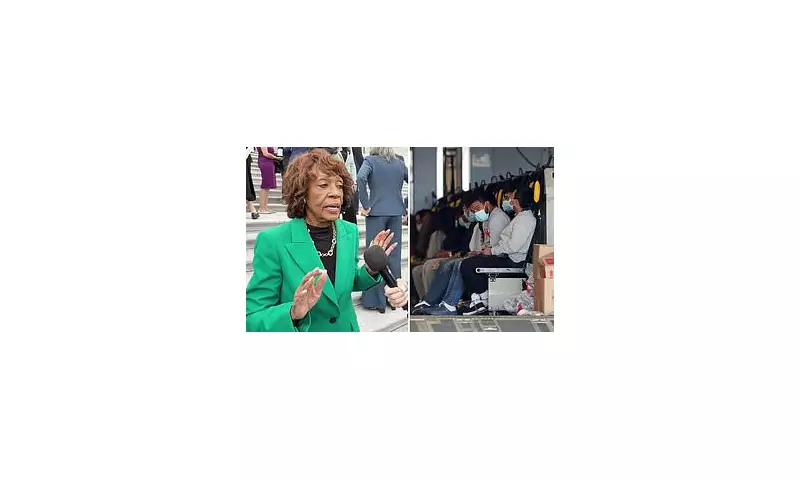
In a dramatic turn of events that could reshape America's immigration landscape, Democratic lawmakers are facing accusations of leveraging the looming government shutdown to advance protections for undocumented migrants.
Political Brinkmanship or Strategic Maneuvering?
Congresswoman Maxine Waters finds herself at the centre of a growing political storm as reports emerge that Democratic leadership is pushing to include safeguards for illegal immigrants in crucial budget negotiations. The move has sparked fierce debate about the party's priorities as the nation teeters on the edge of a federal shutdown.
Insiders suggest that Waters and her colleagues are prepared to dig in their heels during high-stakes talks, potentially risking government operations to secure concessions for migrant communities. This strategy has drawn both praise from progressive circles and condemnation from opponents who question the timing and intent.
The Immigration Factor in Budget Battles
The controversy highlights how immigration policy has become increasingly entangled with routine government funding processes. What traditionally served as straightforward budgetary discussions have transformed into complex negotiations touching on some of the nation's most divisive social issues.
Critics argue that linking immigration measures to essential funding bills represents a dangerous politicisation of basic governance. Supporters, however, maintain that protecting vulnerable populations justifies using whatever legislative leverage becomes available.
Waters' Controversial Stance
Representative Waters has long been a vocal advocate for immigrant rights, but her current approach has attracted particular scrutiny. The veteran lawmaker appears to be championing a position that could see Democrats withholding support for stopgap funding measures unless certain immigration protections are guaranteed.
This hardline stance comes as border encounters continue to make headlines and cities across America grapple with the practical challenges of migrant influxes. The political calculus appears to weigh humanitarian concerns against potential backlash from voters concerned about border security.
Broader Implications for US Politics
The unfolding drama extends beyond immediate budget concerns, potentially setting precedents for how future legislative battles will be fought. The tactic of tying immigration policy to must-pass funding bills could become a recurring feature of Washington negotiations, further complicating the already challenging task of governance.
As the deadline approaches, all eyes remain on Capitol Hill where Waters and her colleagues must balance their policy objectives against the practical necessity of keeping the government's lights on. The outcome may well determine not just short-term funding but the future direction of immigration politics in America.






